
 Steve Hackett
Steve Hackett

 Yes
Yes
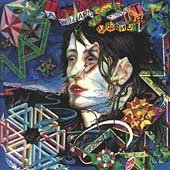
As has been stated many times I am a Todd Rundgren fan. Whilst you may never have heard of him, he, rest assured, has probably never heard of you, either. People that have heard of him include Meatloaf, Ringo Starr, Patti Smith, Cheap Trick, The Tubes, Darryl Hall and John Oates and virtually everyone else in the music industry. He is in fact "A Wizard, A True Star".
Todd first came to wider public notice in 1968 as a member of "Nazz", a sort of U.S. answer to The Beatles. I have their first album, "Nazz", and need to track down the second and third albums, "Nazz Nazz" and "Nazz 3". Todd's first album as a solo artist is entitled "Runt", 1970. Right from the start, Todd was showing his versatility and willingness to experiment. He is one of the few artists I know who has been prepared to experiment with every new album he has released. The idea of resting upon his laurels (such as they may be, under-rated genius that he is) seems entirely foreign to him. Sublime ballads and examinations of the human condition gave way in 1973 to out and out psychaedelic experimentation in the form of "A Wizard, A True Star". The influence of what can only be described as "truly mind-expanding" substances is apparent in this and the next couple of albums. A return to something closer to the "Mainstream" scene is seen in "Faithful" (1976). Subsequent albums have seen everything from Rock Opera to Rap attempted, with some success in my opinion. I could hardly believe it myself when Todd had a go at lounge/bossa nova in "With a Twist" (1997). Contrary to what common sense and good taste may suggest to you, this also works.
Todd is married to Michele, a very nice lady, with a great voice and excellent sense of humour. Impeccable manners, too.
I have only once had the pleasure of seeing Todd in concert (that's the penalty for living in the UK) and that was when he toured with "Ringo Starr's All Starr Band". On the evening in question, Todd received a nomination from Joe Walsh for the Vice-Presidency of the United States of America. As far as I know, Todd never actually ran for the post.
Enough Hero Worship for now.
Besides, those folks at The TR Connection do a great job; try them. You should go for Todd's own website as well. The sleepy Usenet newsgroup, alt.music.todd-rundgren, has information on occasion, and is a well-mannered group to boot. In addition, The Daily Vault has the occasional review of Todd Rundgren and Utopia albums, so you can go there for more unbiased opinions.
Instead of doing a discography, which is inevitably incomplete
(someone will always say "Hey, you forgot the third album on the
Purple Patterned People Eater label!"), I provide a list of what I
have in my collection. I have taken the liberty of indicating what
might be termed "definitive albums" (or "favourites") with a
J or
even JJ. Clunkers receive a L. Albums without an
indicator are still very much worth exploring. There is no extra
charge for this service.
|
Album |
Year |
|---|---|
|
Runt J |
|
|
Runt. The Ballad of Todd Rundgren J |
|
|
Something/Anything? JJ |
|
|
A Wizard, A True Star JJ |
|
|
Todd JJ |
|
|
Initiation J |
|
|
Faithful J |
|
|
Back to the Bars |
|
|
Hermit of Mink Hollow |
|
|
Healing J |
|
|
The Ever Popular Tortured Artist Effect |
|
|
A Capella J |
|
|
Anthology |
|
|
Nearly Human |
|
|
2nd Wind J |
|
|
No World Order J |
|
|
The Individualist J |
|
|
Up Against It! |
|
|
With a Twist |
|
As you have been such good boys and girls,
I am providing a list of the albums I have by Utopia, Todd's band of
the 1970's and 1980's.
|
Album |
Year |
|---|---|
|
Todd Rundgren's Utopia J |
|
|
Another Live J |
|
|
Ra J |
|
|
Oops! Wrong Planet J |
|
|
Adventures in Utopia |
|
|
Deface the Music |
|
|
Swing to the Right J |
|
|
Utopia J |
|
|
Oblivion J |
|
|
POV |
|
|
Trivia |
|
|
Redux '92: Life in Japan |
|
|
Oblivion, POV and Some Trivia |
|
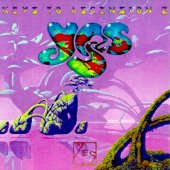
Yes has undergone many changes since 1968 - they have been going that long! From the progressive "glory days" of the early 1970's to the "power play" band of the 1980's, there is a thread to the music of Yes. The 1990's show attempts by the band to reconcile the major divisions in style and direction. As Jon Anderson, the lead vocalist of the band, would say, Yes plays "Yes Music". I have yet to hear a better description of the band's style. My favourite albums are "Close to the Edge" (1972) and "Relayer" (1974), on alternate days. There is sufficient variety in the catalogue for vastly different candidates for "All Time Best Yes Album", so if you prefer "90125" to "Tales from Topographic Oceans", I say go for it.
Of Jon Anderson's other output, perhaps the most famous would be what has been performed with Vangelis, as "Jon and Vangelis". Sublime beauty in much of that body of work. I have a solo album of his by the name of "Olias of Sunhillow" - this is a lovely album.
Steve Howe, a superb guitarist, will also be familiar to fans of Asia. He also has an extensive solo catalogue that I really must get round to at some stage.
Chris Squire, bassist, is the lynch-pin of the group's ever changing membership, the common thread in the band's richly woven history. His solo work will probably be finished some time soon ...
These three individuals might be termed the "core members" of Yes. Drummers Alan White and Bill Bruford have both been essential contributers to the band. Keyboardists have included Tony Kaye, Rick Wakeman, Patrick Moraz and Igor Khoroshev. Other members past and present include: Peter Banks, Trevor Horn, Geoffrey Downes, Trevor Rabin and Billy Sherwood.
I have a piece of work by Patrick Moraz, called "Story of i". I find this a fascinating collection of ideas, from a former band member who regrettably cut only one album with Yes ("Relayer"). I wish we could all have seen what he might have contributed to the band had he remained with it for further releases.
There is an extraordinary album called "Anderson Bruford Wakeman Howe" (1989), by Anderson Bruford Wakeman Howe. A Yes release in all but name, I heartily recommend this terrific album.
By strange coincidence, I am unaware of any direct interaction between Todd Rundgren (my other favourite in the music business) and Yes. Isn't life strange? Useful information may be gleaned from the Yes Internet Source, Notes from the Edge. A useful index to discographies and other useful information might be found at the website of someone by the unlikely name of Henry Potts. The occasional review of Yes music has appeared on The Daily Vault. Beware the lunacy of Usenet's alt.music.yes, though - you can go right off some people.
Instead of doing a discography, which is inevitably incomplete
(someone will always say "Hey, you forgot the third album on the
Purple Patterned People Eater label!"), I provide a list of what I
have in my collection. I have taken the liberty of indicating what
might be termed "definitive albums" (or "favourites") with a
J or
even JJ. Clunkers receive a L. Albums without an
indicator are still very much worth exploring. If I don't give you
the Keys, how are you supposed to be ready?
|
Album |
Year |
|---|---|
|
Yes |
|
|
Time and a Word |
|
|
The Yes Album |
|
|
Close to the Edge JJ |
|
|
Fragile JJ |
|
|
Tales from Topographic Oceans |
|
|
Yessongs |
|
|
Relayer JJ |
|
|
Going for the One |
|
|
Tormato |
|
|
Drama J |
|
|
90125 |
|
|
Big Generator J |
|
|
Union L |
|
|
Talk |
|
|
Keys to Ascension |
|
|
Keys to Ascension 2 J |
|
|
Open Your Eyes |
|
|
Something's Coming (Also known as "Beyond and Before", in the USA) |
|
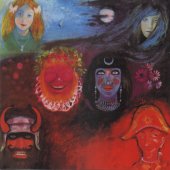
Robert Fripp may not be everyone's paragon of rationality, but he did create King Crimson in all its incarnations. Albums up to "Red" (1974) were exceptionally creative and diverse, none more so than "Lark's Tongues in Aspic" (1973) pictured above. In the 1980's, Crimson moved down more commercial channels in the shape of "Discipline" (itself a superior album, 1981), "Beat" (1982 and less superior) and "Three of a Perfect Pair" (1984 and even less so). I lost touch with Crimson at this stage, but as time and resources allow, I may look in on their more recent output. Try Elephant Talk, they keep up to date there.
I enjoy King Crimson with Adrian Belew almost as much as I do its earlier incarnations. You have to adapt, you know?
Instead of doing a discography, which is inevitably incomplete
(someone will always say "Hey, you forgot the third album on the
Purple Patterned People Eater label!"), I provide a list of what I
have in my collection. I have taken the liberty of indicating what
might be termed "definitive albums" (or "favourites") with a
J or
even JJ. Clunkers receive a L. Albums without an
indicator are still very much worth exploring. I spoil you guys,
don't I?
|
Album |
|
|---|---|
|
In the Court of the Crimson King JJ |
|
|
In the Wake of Poseidon |
|
|
Lizard J |
|
|
Islands J |
|
|
Earthbound |
|
|
Larks' Tongues in Aspic J |
|
|
Red JJ |
|
|
Starless and Bible Black J |
|
|
The Young Person's Guide to King Crimson |
|
|
USA |
|
|
Discipline J |
|
|
Beat |
|
|
Three of a Perfect Pair |
|

Steve Hackett, in a former life, was a major part of Genesis and was, with Peter Gabriel, the main reason I fell in love with the music of that band. Alas, things just aren't quite the same now. As a solo artist, Steve Hackett has created some excellent albums, but none better than "Please Don't Touch" (1978).
Naturally, www.stevehackett.com will have more information on these matters.
Instead of doing a discography, which is inevitably incomplete
(someone will always say "Hey, you forgot the third album on the
Purple Patterned People Eater label!"), I provide a list of what I
have in my collection. I have taken the liberty of indicating what
might be termed "definitive albums" (or "favourites") with a
J or
even JJ. Clunkers receive a L. Albums without an
indicator are still very much worth exploring. On the other hand,
when I feel I'm over-reacting, and I'm trying too hard, it might be
that I need to get out in the country ...
|
|
|
|
Voyage of the Acolyte |
|
|
Please Don't Touch JJ |
|
|
Spectral Mornings JJ |
|
|
Defector J |
|
|
The Tokyo Tapes J |
|
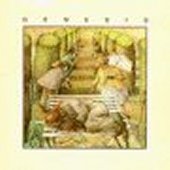
I first enjoyed "Selling England by the Pound" shortly after it came out. It and "Foxtrot" were two of the influences responsible for my love for progressive rock, and are fondly regarded by me for this reason. The years may not have been kind to the early Genesis catalogue, but I still feel Genesis 1970 to 1974 represented some of the finest progressive rock to have graced the planet. "The Lamb Lies Down on Broadway" has a great deal of band-politics baggage attaching to it, but is a brilliant album all the same. Peter Gabriel-era Genesis represents their best period for me, but "Wind and Wuthering" is nevertheless one of my favourite albums. After 1980, well, what can I say?
I have a certain amount of Peter Gabriel solo work (the first four albums plus "Peter Gabriel Plays Live" and "A Secret World Live"). These are worth checking out too. Tony Banks has had stuff out of his own, which I have not yet investigated. The incomparable Steve Hackett gets his own page elsewhere on this site. Woo hoo!
Mike Rutherford formed "Mike and the Mechanics" and I believe Phil Collins has done a few solo albums too. Grin.
The band went on record years ago as saying they would never again do a song like "After the Ordeal" (off "Selling England by the Pound"). The implication was that they did not like that song. Thanks to that interview, I rarely listen to an artist's opinion of his or her own work. Congratulations to Mike Rutherford and the rest of the band for that "liberating" experience.
Instead of doing a discography, which is inevitably incomplete
(someone will always say "Hey, you forgot the third album on the
Purple Patterned People Eater label!"), I provide a list of what I
have in my collection. I have taken the liberty of indicating what
might be termed "definitive albums" (or "favourites") with a
J or
even JJ. Clunkers receive a L. Albums without an
indicator are still very much worth exploring. I know what I like
...
|
|
|
|
Trespass J |
|
|
Nursery Cryme J |
|
|
Foxtrot JJ |
|
|
Live |
|
|
Selling England by the Pound JJ |
|
|
The Lamb Lies Down on Broadway J |
|
|
A Trick of the Tale |
|
|
Wind and Wuthering J |
|
|
And Then There Were Three |
|
|
Duke L |
|
|
Genesis L |
|
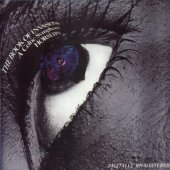
Horslips is an Irish band. I know only two of their albums. "The Book of Invasions" is subtitled "A Celtic Symphony" and is very rich in traditional Celtic themes, mythology and instrumentation, in a rock-opera format. "The Book of Invasions" is a must for anyone remotely interested in traditional Irish music. It's one of my all-time favourite albums and is highly recommended. The other album is called "The Man Who Built America" and comprises rock in various different styles, mainstream in style, but enthusiastically played.
Try the link to Horslips for much more information.
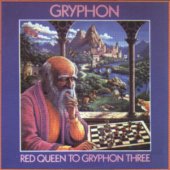
Gryphon is a band I have known about for many years, but it is only recently that I purchased a couple of their releases, "Red Queen to Gryphon Three" (1974) and "Raindance" (1975). I was lucky in my childhood in having a discerning older sister who possessed a collection of some of the very best in progressive rock from the late sixties to the end of Prog's heyday, 1974 (my opinion). Hearing "Raindance" again after twenty-three years was (and is) a magical experience akin to time travel. As for "Red Queen", this was to a great extent the album responsible for launching Gryphon, winning the band a place on the Yes Tour of 1974 in the USA.
I am currently attempting to listen to and enjoy "Gryphon" (their first album). It's a bit of a struggle- the sound is medieval, with an interesting mixture of traditional, archaic even, instruments in evidence, but combined with a set of vocals that could curdle milk. "Midnight Mushrumps", their second album, seems to have more potential as far as I am concerned. A friend has suggested I track down an album named "Treason". If a copy comes to light, I will be delighted to give it a go.
Try the link to Gryphon for much more information.
|
|
|
|
Gryphon |
|
|
Midnight Mushrumps |
|
|
Red Queen to Gryphon Three J |
|
|
Raindance J |
|
|
Treason |
|
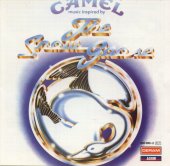
I think it remarkable that my site had been up for many months and I still hadn't got round to a Camel section. I imagine it is because one half of me insists upon remembering Camel as a tad on the "lightweight" side. They certainly have had their lows as well as considerable highs, but the albums I have in my collection are range from the very good to the sublime. Parts of "I Can See Your House from Here" are less then impressive, I must admit, but there again, the album title itself is a lovely little pun when combined with the cover picture (a view of the Earth from space). The other end of the scale is "The Snow Goose", a symphonic masterpiece and among the most dearly-loved albums in my collection.
The 1978 "A Live Record" is special for several reasons. It contains a live rendition of The Snow Goose and Song Within a Song that are, if anything, superior to the studio versions (gasps from those who know me and my opinion of most live albums). The second is the difficulty in getting people, especially people working in music shops, to accept the album's title. They insist upon correcting me, saying, "A Live Album by Camel, you say?". Accept no substitutes, I say.
I heard the 1997 Live release a year or two after it came out - the first CD was an enjoyable trip down memory lane, with the band in very good form, performing tracks from their hay-day in the Seventies. The second CD featured much more recent stuff from the Eighties and Nighties, and the spell was broken for me. What's so bad about being stuck in a time warp? I've been in that time-warp for a while, mind - I saw Camel when they were touring in 1982 and remember thinking at the time, "It's just not progressive enough these days".
|
|
|
|
The Snow Goose JJ |
|
|
Moonmadness |
|
|
Rain Dances J |
|
|
A Live Record J |
|
|
Breathless J |
|
|
I Can See Your House from Here |
|